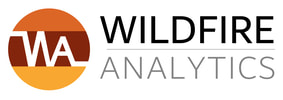We live in Fort Nelson, British Columbia, one of the most northern, rural, remote places in the province with only one ventilator in our hospital staffed by five doctors along with nurses and support crew. Getting medevac'ed out consists of having good weather and an aircraft to take us to Prince George, Vancouver, or Edmonton. So for those of us living here in Fort Nelson, preventing the introduction of COVID-19 and its spread in our community is of critical concern and need.
I have the greatest respect and pride in my entire crew for their dedication to meeting and exceeding our safety protocols and to upholding COVID-19 preparedness, protection, and prevention in their daily lives. I also firmly believe that we can continue to keep working during this global pandemic - as we have proven - in a safe way where we conscientiously move about and keep doing what we do best: working as a well-oiled machine no matter if we are on the fireline, chewing through wood on FireSmart fuel treatments, or training in preparation for our next job. Where there is a will, there is a way forward with intention, awareness, and sensitivity to our surroundings – all it takes is for us to adjust our operating protocols, be creative in our practices and procedures, and to continually think and be aware of the greater good for all.
0 Comments
Leave a Reply. |
FIELD NOTESOur research at the University of Alberta often involves stints in the field. Field Notes posted here are written by team members and report on their adventures off-campus. Archives
December 2024
|
© 2025 by J. Beverly
Banner photo courtesy Alberta Wildfire - Fire PWF-034 2018
Banner photo courtesy Alberta Wildfire - Fire PWF-034 2018








 RSS Feed
RSS Feed